It’s a little over 18 months since Dan Howard bumped his way down a dirt track in rural Tasmania and arrived at the security gates of Tasmanian Botanics.
Inside the compound, surrounded as it is by rolling hills and farmland, stood a patchwork collection of buildings that, to be kind, were modest in appearance. Then again, the complex had been an asylum-seeker detention centre several years before, and they are rarely noted for their architectural splendour.
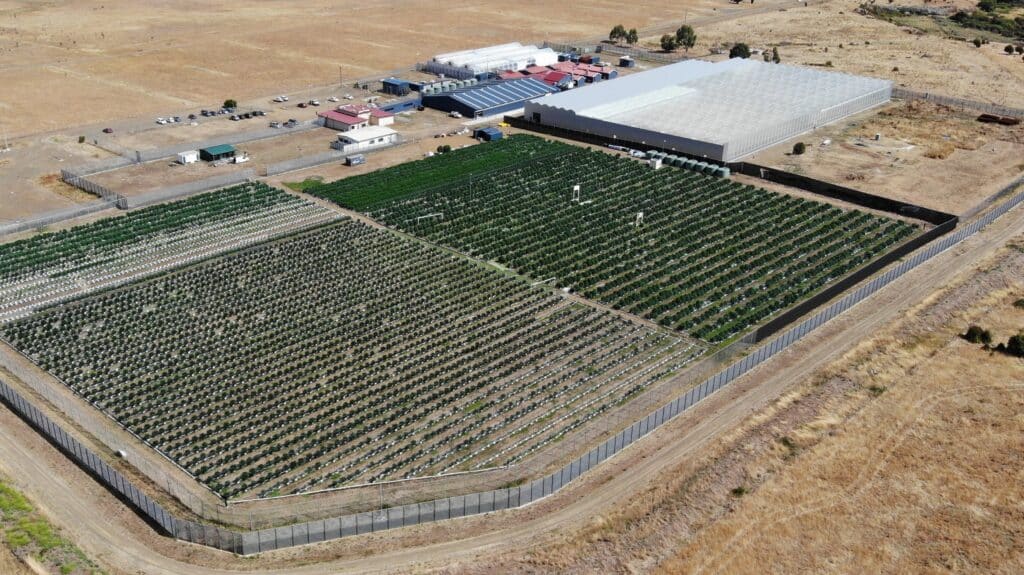
Even the goalposts of the previous residents’ football pitch remained, now incongruously located amid a sea of cannabis plants in the summer months.
“I remember looking at it thinking, ‘man, well, we’re in this I guess’,” Howard fondly recalls.
And in it he remains, and rather successfully as it turns out.
The former Tilray and Valens executive had been appointed in July 2021 – when Covid was still restricting travel – to commercialise the business and map out a pathway to profitability. He arrived on site later the same year, in November, having fulfilled the then entry requirements of two-week quarantine.
At that point, Tasmanian Botanics had plants in the ground, but little by way of sales and uncertain strategic thinking. Something needed to change.
It soon became apparent that what the facility itself lacked in sophistication – at least in late 2021 – it made up for in other ways. Chief among them was the zeal with which the Tasmanian Botanics team bought into Howard’s singular focus on delivering quality Australian-grown flower for Australian patients.
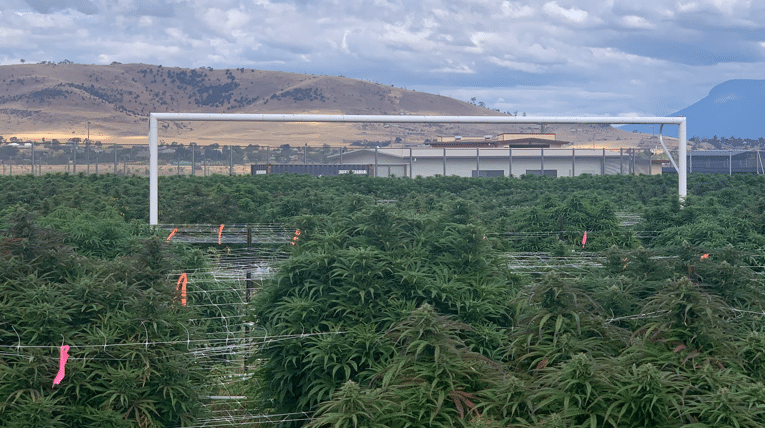
“The productivity here is pretty amazing. Alex [head of manufacturing Alex Cremonese] cranks a lot out of this little site,” he says. “We weren’t the shiniest or the newest, but we’ve been incredibly effective at what we do.
“And, you know, there’s a charm with these kinds of mishmash out-buildings in rural settings. There’s sheep on one side, cows on the other, so it’s very agricultural and that’s good. It sets a tone of efficiency and culture where everyone rolls up their sleeves.”
Such has been the firm’s cost-conscious approach that it even took advantage of a local school’s clear out to equip its boardroom with various pieces of furniture.
Unpopular decisions
On arriving at the facility, a 30-minute drive from Hobart, Howard made what he acknowledges was an unpopular – but necessary – decision; a hard stop to a new development which had been seen as the solution to the company’s commercial stagnation.
Instead, Tasmanian Botanics would focus on maximising production at its existing facility. What the firm already had needed to work before millions were ploughed into a major facility upgrade, he told staff.
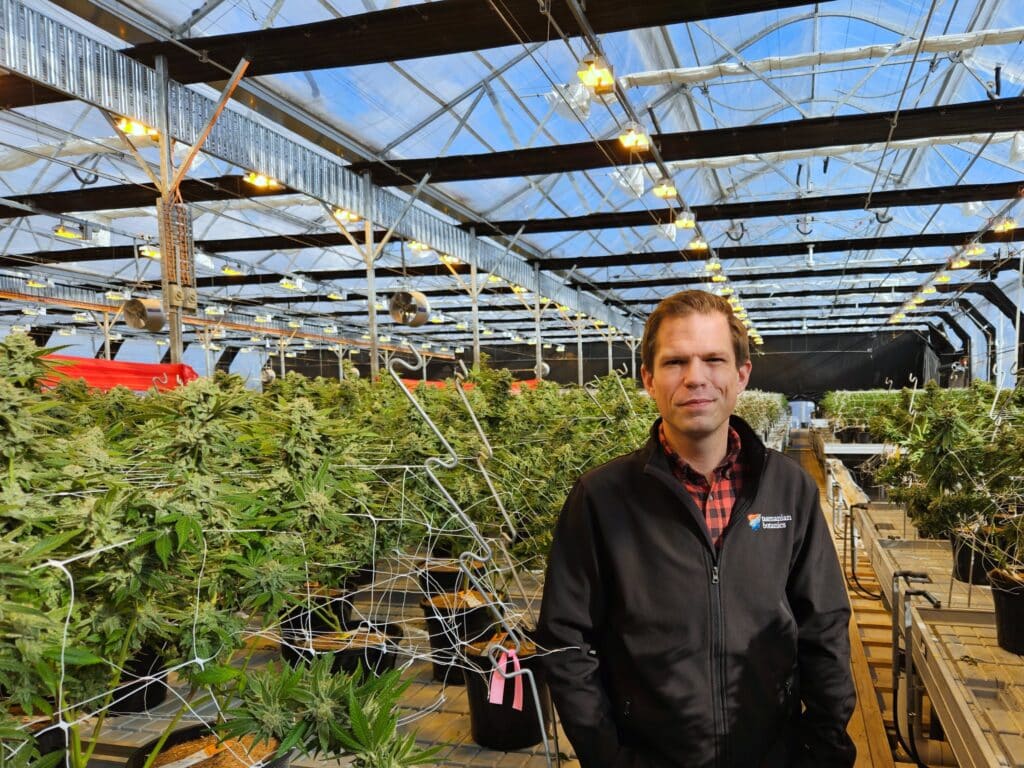
And work it did, despite initial scepticism. Between the existing structure and outdoor growing area, Tasmanian Botanics now produces close to 3,500kg of dry trimmed flower equivalent, with an equal amount of trim by-product which is used to produce over 1,000kg of cannabis extract.
“When you’re making zero revenues it’s not prudent to continue down that path of investing in new facilities,” Howard tells Cannabiz. “But there was pushback. People said [the existing facility] was not sufficient. But necessity is the mother of invention.
“We found a way and now a lot of patients say we have some of the best flower in the country. We have executed extremely well and been very successful, which is testament to the team we have here.
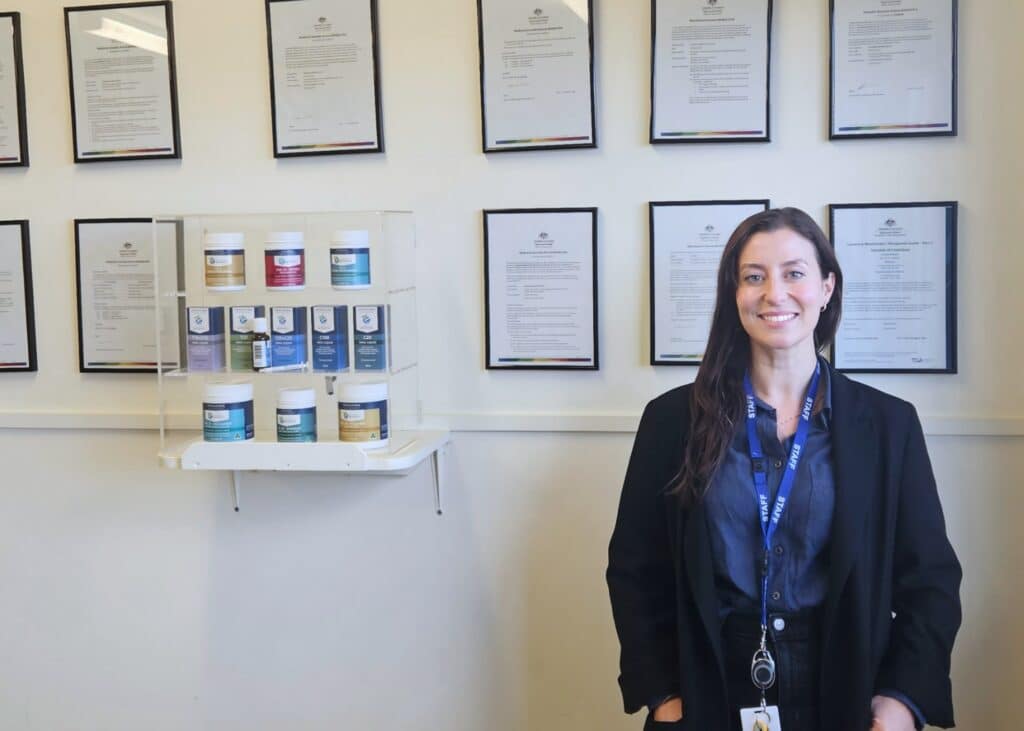
“We don’t have a sales team, it’s largely me and Josie [quality assurance manager Josie Hamlett], and we hit the phones pretty hard when I first came here. We called doctors and clinics and just tried to chip away.
“I don’t want to say the product sells itself, but there’s a high degree of integrity, we price it right, it’s locally grown and a good quality product that we stand behind. And people wanted that.”
‘It all starts with flower’
Tasmanian Botanics grows, manufactures and packages its complete range of flowers and oils on site, in GMP facilities, making it one of the very few Australian companies to do so. And barring a small amount that’s exported to New Zealand, all is produced for the Australian market.
“It all starts with flower, and that’s been the change of mentality within the company,” Howard explains.
“I think Max [head of cultivation Max Edgley] is very happy about that because flower was never really appreciated as the star of the show. Now it is. If you grow great flower, your trim will be great and so will the terpenes.
“Even if you’re making an extract-based medicine, it needs to start with quality flower and that mentality is night and day different to how it used to be. It allows people to take pride in what they do. I certainly take pride in it.
“When we get a good review, or receive patient feedback, people are able to see that what they’re doing is having a real impact on people’s lives. That’s been a big cultural shift.”
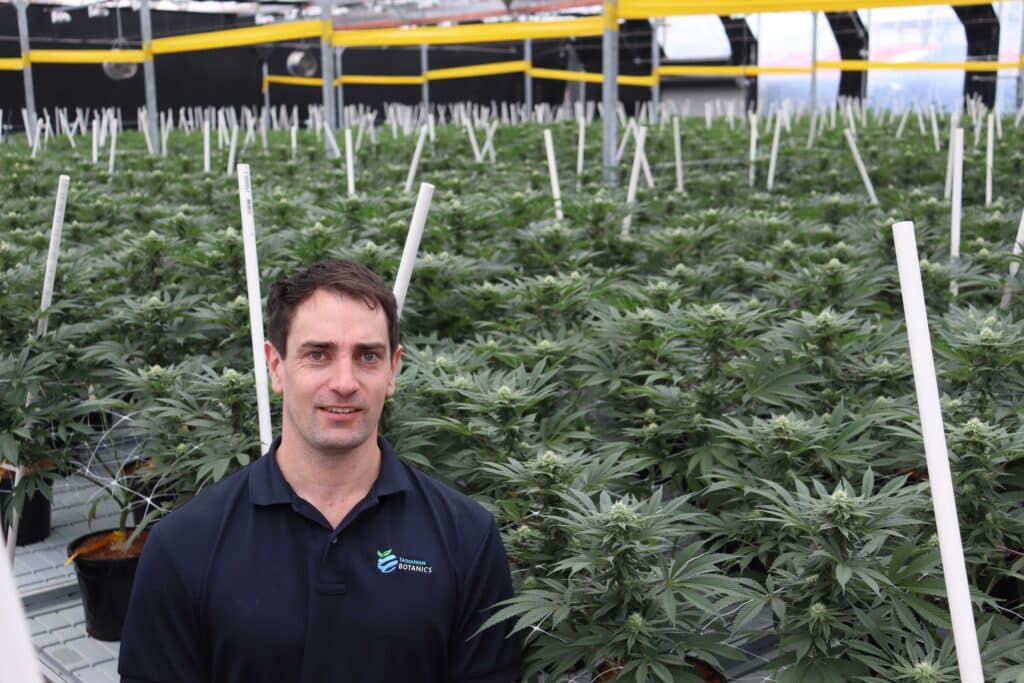
But it’s one thing producing one or two quality batches, quite another ensuring it happens time after time. Consistency is critical – which is where GMP comes in. Yet a brand new GMP facility in itself does not guarantee quality, Howard says.
“When someone says they’ve built a GMP-compliant facility, that’s the easy part,” he explains. “The hard part is the systems that go around that facility, the auditing, data collection, validation. I liken it to a Ferrari. It looks great, but if you don’t maintain it, it will fall apart pretty quickly.
“GMP is basically about building quality into the process. Sure, the facility itself is part of that, but it’s only a small part.”
Expansion back on track
With Tasmanian Botanics selling out its product range – thanks in large part to word-of-mouth marketing according to Howard – the construction and fit out of the 1.1 hectare greenhouse is now back underway.
And the project is being funded not through debt facilities or handouts from the company’s owners and financial backers, but through existing cash flow.
Such rapid progress has surprised even Howard himself.
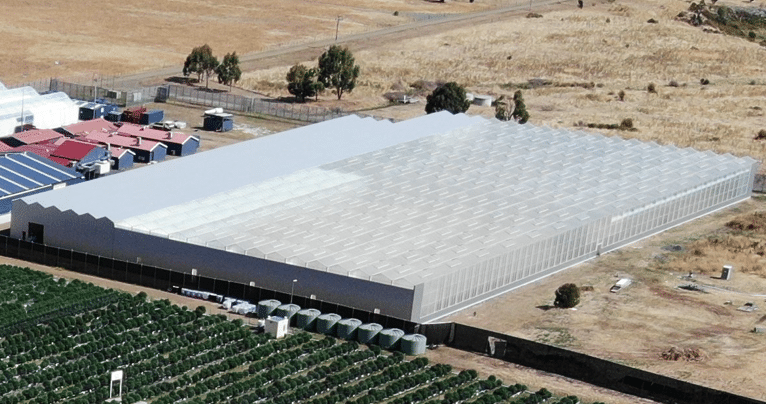
“I wouldn’t have imagined in my wildest dreams that we would be in a position where we would need to build new chambers as quickly as we possibly can, and be able to pay for it out of our own cash flow,” he says. “Some of what we’ve accomplished here is pretty incredible.”
The build-out is being managed internally this time with chief operating officer Craig Knight taking the lead and facilities manager Hayden Tonks managing the day to day.
The facilities will increase Tasmanian Botanics’ greenhouse capacity three-fold, with phase one pushing up annual production from 1,250kg of dried flower to 4,500kg. Combined with the outdoor production, nearly 7,000kg of dried flower and 2,000kg of extracts will be produced. The first plants are expected to move into the new greenhouse in July 2023, with harvest beginning in November.
But while the expansion project is back on track, the company has stripped away some of the high-tech and expensive features originally considered. Not that the greenhouse isn’t world class. It is, Howard stresses. But consideration had to be given to the cost of production and the likely implications that would have on patients’ wallets.
“From a greenhouse perspective, it will be a world-class quality structure. We will fit it out in a mid-tech way and without doubt it’s a facility that will be able to stand on its own against any greenhouse, all day long,” he insists.
“When you’re in Tasmania you don’t require advanced climate control with air conditioning and dehumidification and all those things. You need to take advantage of what your location offers – it’s sunny, dry and cool here.
“It just doesn’t make sense. It would drive up the cost of production for marginal gains and we’d have to pass that on to the consumer.
“It’s a binary decision. If we want those bells and whistles we’d also need to wait two more years to save up enough money, and that doesn’t make any sense either.”
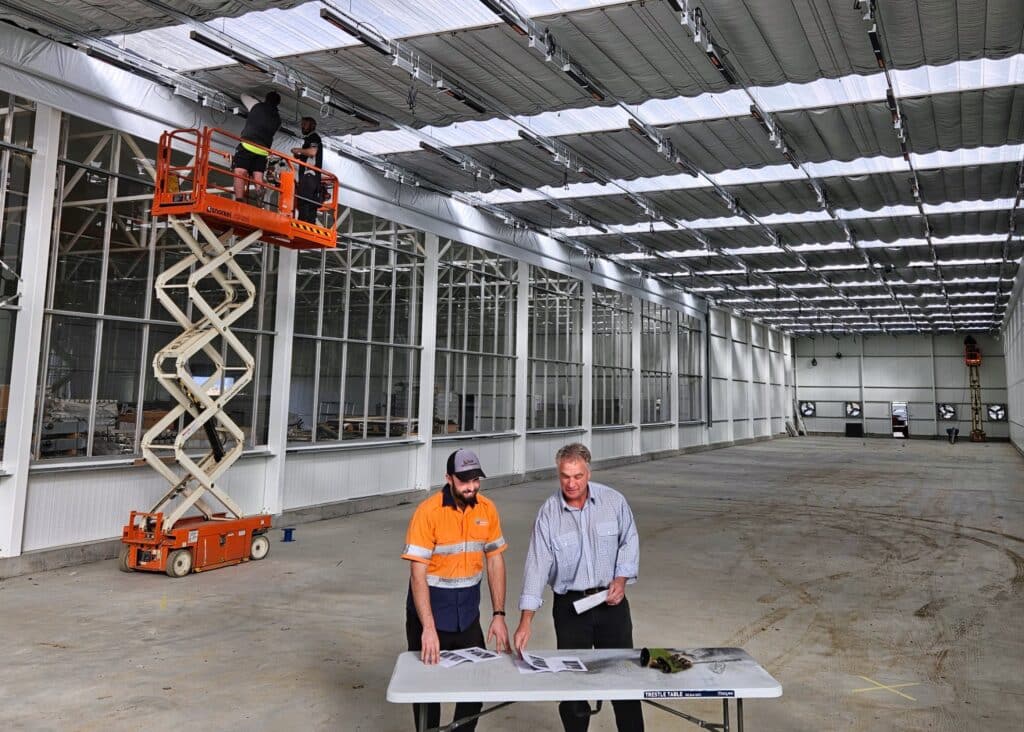
In any case, decking out a facility with every conceivable high-tech system does not guarantee top-grade cannabis. Far from it, Howard says.
“You can’t buy your way into good quality. You need to care, which is the number one criteria for me. If you care – as our people do – everything else will follow. If you care and you’re competent you can teach almost anything. And Max cares greatly. He has a desire to drive continuous improvement and you can’t build that in a facility. That’s a cultural thing.
“Taking off some of those bells and whistles may make it less sexy, but growing things shouldn’t be sexy. Patients saying ours is the best flower or oil they’ve had, that’s what is satisfying, not having a greenhouse with great air conditioning.”
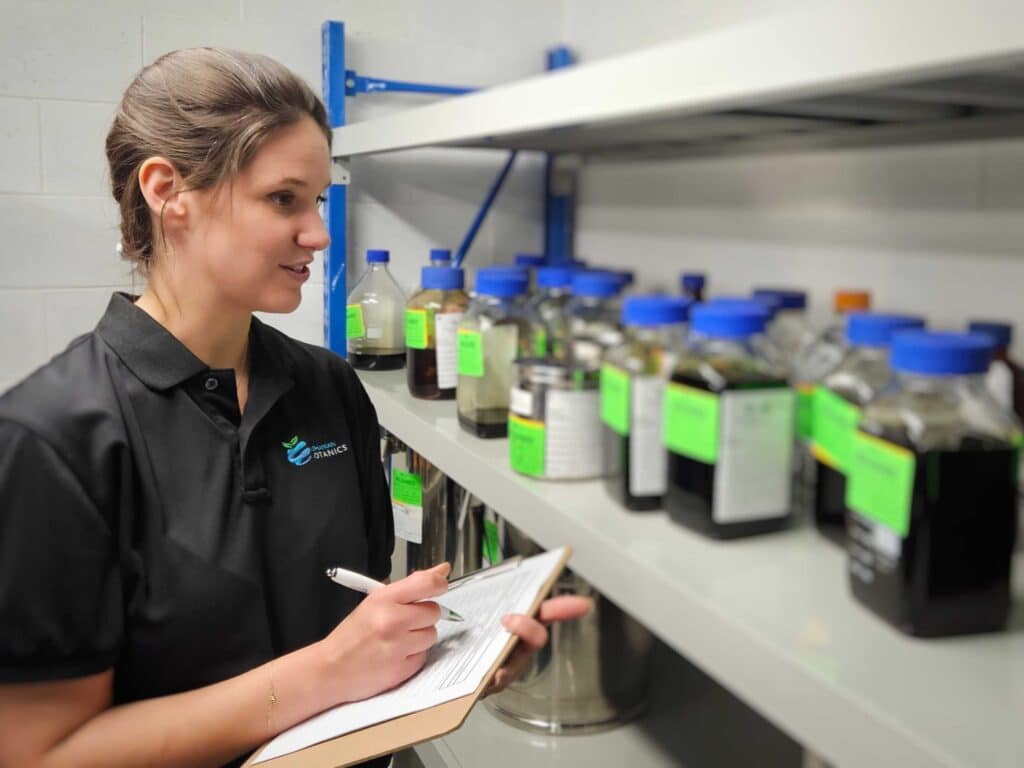
Along with the new greenhouse, Tasmanian Botanics has invested significantly into other areas of the business. It recently took delivery of new equipment that will increase extraction capacity 10-fold, while it has started filling its own vape cartridges on site, adding another string to its product bow.
Beating the illicit market
Howard says the goal at Tasmanian Botanics is to beat the illicit market through quality product and competitive pricing, and to ensure that people who buy its products never return to street cannabis.
For that to happen, though, trust and price integrity are paramount, something Howard is keen to impress.
“Short-term price maximisation can be detrimental to long-term profitability. If people don’t trust your brand to be affordable, if they’re not trusting you to be honest and transparent, consumers will take other options,” he says.
“People will trust your brand if you’re being fair, when perhaps you don’t have to be fair, and when you’re not making a cash grab when everyone else is. The market price is set by the illicit market and we try to price our products with that in mind.”
As with many products – regardless of industry – goods manufactured at high cost come with an inflated price tag to match. Such products are never the market leader, Howard says. An affordable, quality product, more often than not, will trump an over-priced premium one.
“Your everyday market leader is never the most premium. And that’s the market where we want to live, and be able to live profitably. To do that we need to make shrewd and sometimes difficult decisions,” he says.
Controlling its destiny
With around 80% of legal medicinal cannabis products consumed in Australia still arriving from overseas, it is the home-grown nature of Tasmanian Botanics products that is likely to set the company up for long-term success.
Not only does it have full control of the product, it is not open to the vagaries of international supply. While acknowledging the quality of some imported goods, and the success some companies are having, the overseas producer is ultimately pulling the strings.
“It’s a young industry and nobody has built up a track record of execution that I would want to bet my company’s future on,” he says. “I don’t want to rely on a partner which, if they went away, could prove fatal for my business.
“Companies are not importing big enough volumes to dictate the strategy of a Canadian or Israeli company. You’re really a taker of what’s available and, for the medicinal market, I don’t think that’s appropriate.
“You can’t really stand behind a product because you don’t decide if the producer keeps growing it or not. People can spend all day talking about their terpene profiles or whatever. So how did they grow it? They didn’t. They bought it from someone overseas so they’re not really in control of it.“
Nor are importers able to quickly react to market forces or consumer trends, he adds.
“We’re not a genetic house, but we’ve got five or six cultivars in our roster, and they perform very well. There’s a couple of potential crosses that we’re growing outside that will likely transition into the new greenhouse. But if we do launch something that the market doesn’t like, we can stop and immediately start something different. We can control and iterate, and that’s what we’re about.
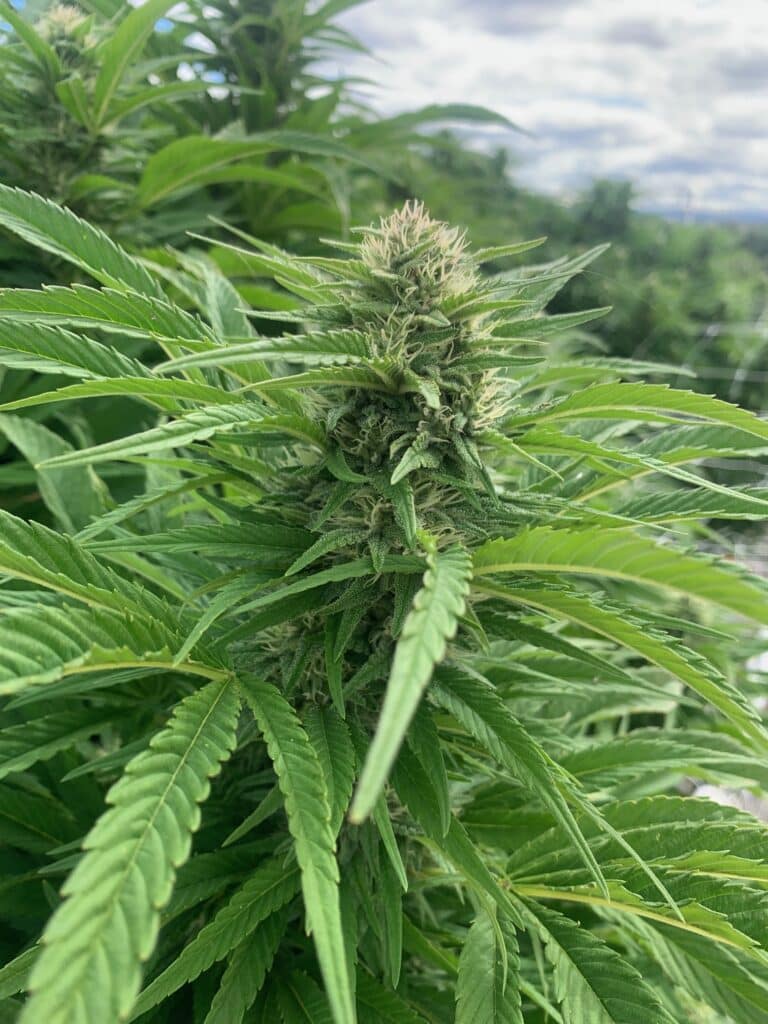
“If you rely on imported product, how do you respond to the market when consumers say ‘we don’t really like this’. All you can do is say ‘hey, supplier, what else do you have on your menu? I’ll try something different’.
“Fundamentally, we want to be in control of our own destiny. There is so much value in having local production and controlling your own product end to end and there’s very few who do that. And I think that will give us the advantage in the long run.
“The first thing I said when I came on board was ‘we’re focused on Australia, if we can’t win here, we won’t win anywhere’.
“And as long as we keep making good product, as long as we keep telling the story and listening to patients, listening to doctors and responding to their feedback, then we’ll be okay, because that’s a winning formula.”

Agree, Tas Bot is a comeback success story, from my first chats with them mid-2021, then Dan coming onboard and watching the improving product and consumer reaction, this last 2 years has been quite the turnaround.
Award-worthy stuff, I hope that’s recognised at the Cannabiz Awards.
Dan, Max, Alex and the team are doing a great job. Well done Tas Botanics!